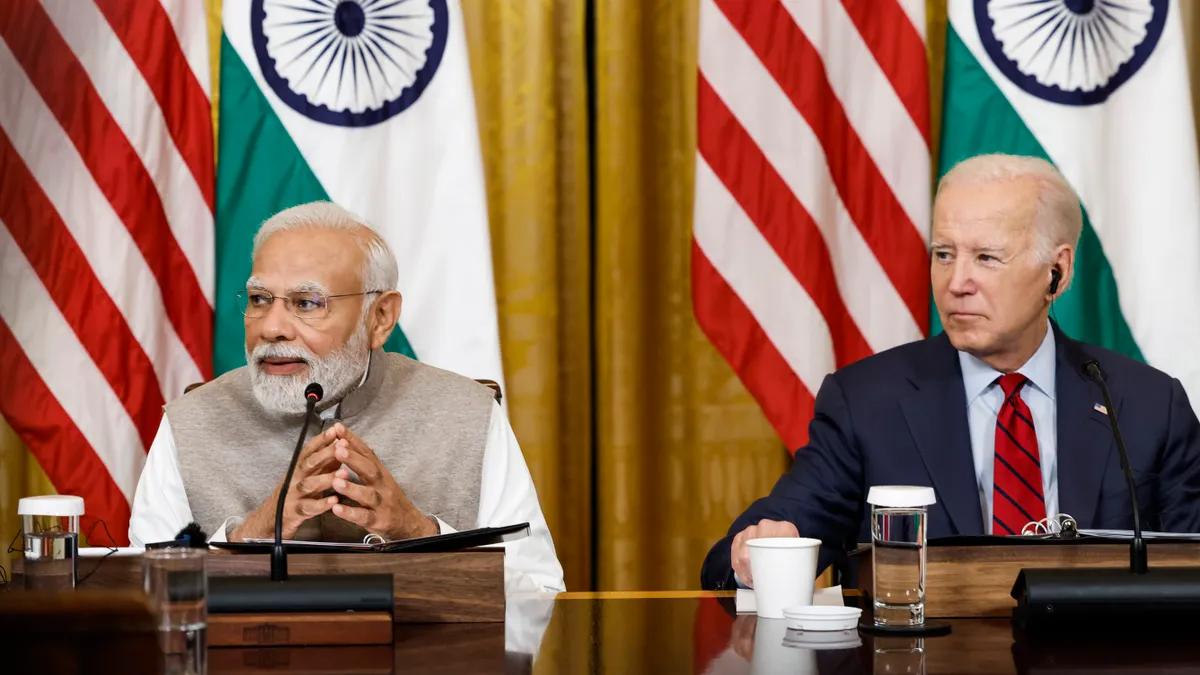Dive Brief:
- India agreed to lift retaliatory tariffs on almonds, apples and other U.S. agricultural products, resolving a dispute over steel and aluminum duties imposed during the Trump administration.
- The deal, announced last Wednesday, removes additional tariffs as high as 20% for products including walnuts, lentils and apples. Steel and aluminum tariffs will remain in effect for India exports, though a certain amount of metals can still enter the U.S. duty-free through an exclusion process.
- The easing of tariffs is expected to expand the market for agricultural exporters, who have largely been iced out of India's market for five years. “We are eager to get back to business in India,” Mark Powers, president of the Northwest Horticultural Council, said in a statement.
Dive Insight:
Even before retaliatory tariffs were implemented in 2019, duties for agricultural imports into India were among the highest in the world. Additional tariffs only shrunk U.S. exporters' market potential further.
Apple exports from Washington state to India, for example, reached a value of $120 million in 2017. This season, exports totaled less than $1 million, according to Sen. Maria Cantwell, D-Wash., who led a congressional effort to overturn the tariffs. Similarly, pulse crop exports, which include chickpeas and lentils, dwindled to $1 million from $180 million prior to the tariffs.
Eased tariffs will also give an extra boost to industries that have been able to grow trade with India despite the added duties. India was the top export market for almonds in the 2020-2021 crop year, according to the Almond Board of California, with shipments more than doubling in volume over the past five years.
Brian Kuehl, executive director of Farmers for Free Trade, hailed the agreement as "a positive step" toward opening trade, noting "India has always represented an enormous market for American ag exports."
Still, Kuehl added that more work will need to be done for farmers to take full advantage of India's market.
"[U]nderstanding the difficulties American ag has historically faced in India, we will also need to continue to roll up our sleeves to reach agreements that further open the Indian market to American ag exports," he said.
In addition to easing agricultural tariffs, the agreement with India resolves six separate disputes at the World Trade Organization. However, a 2012 dispute over India's ban on poultry imports remains outstanding.











